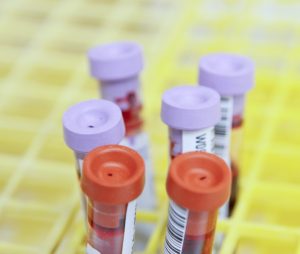
What is Prolactin and Why is it Important?
Before we get into specifics on prolactin and its importance, it’s necessary to know that fertility and getting pregnant depend on the correct balance of reproductive hormones working together. If just one of those hormones is off balance, it can affect fertility. Prolactin, being one of those hormones, when out of whack can make it harder to conceive.
Since Prolactin’s principal physiological action is to initiate and sustain lactation (breastfeeding), it can often be known as the lactogenic hormone. Prolactin is essential for both female and male reproductive health, and levels are even said to have an important role in regulating sexual satisfaction in men and women, according to the National Library of Medicine. This interesting and useful hormone is worth looking into if you’re having trouble conceiving, because high levels of it inhibit your production of follicle-stimulating hormone (FSH), and in turn can impact ovulation.

In addition to potentially causing anovulation, raised prolactin levels can also prevent the ovaries from creating estrogen. Low levels of estrogen can cause halted or irregular periods, a reduction in sex drive, and potential vaginal dryness. For these reasons, some women find it more challenging to get pregnant.
While these challenges can create the perfect storm for infertility, high prolactin levels can be diagnosed through testing and subsequently treated.
When To Get Tested
A prolactin test is useful to measure how much of the hormone prolactin is in your blood. Typically, your doctor may order a prolactin test when you exhibit the following symptoms:
- – Infertility
- – Irregular or absent periods
- – Breast tenderness when you’re not pregnant
- – Breast milk discharge without being pregnant or nursing
- – Premature menopausal symptoms, such as vaginal dryness or hot flashes
Since prolactin levels gradually rise overnight and are highest in the morning, doctors usually request that the blood sample is taken several hours after a person has woken up.
What is a Normal Prolactin Level?
Women who are pregnant or who have just given birth typically have high prolactin levels in order to produce breast milk. A normal prolactin level for a non-pregnant or non-breastfeeding woman, however, is less than 25 ng/mL. Prolactin levels between 30 ng/mL and 200 ng/mL should be considered moderately high.
Reference ranges are dependent on many factors, including age, sex, sample population, and test method, and numeric test results can have different meanings in different laboratories. Always check what your result means for you with your doctor.
What Are The Causes of High Prolactin?

- – Prolactinoma - a small benign tumor in your pituitary gland that produces too much prolactin. Check out Kirsty’s story to learn about her struggle with prolactinoma and subsequent treatment, and ultimately her pregnancy after eight long years of trying to conceive.
- – Hypothyroidism - a condition in which your thyroid gland does not produce enough Triiodothyronine (T3) and thyroxine (T4)
- – Anorexia – an eating disorder
- – PCOS
- – Some medications to treat depression, psychosis, and high blood pressure. Please note, however, that you should not stop taking any prescribed medication without discussing with your doctor first
- – Excessive stress
- – Excessive exercise
- – Lack of sleep
- – Certain foods
In addition, kidney disease and liver failure can also affect the body’s ability to regulate prolactin.
Prolactin and Your Fertility
Try not to feel too discouraged if your test results indicate high levels of prolactin – there are treatment options available that you can discuss with your doctor. Your treatment will likely depend on the cause of your high prolactin.
For example, if your high prolactin is caused by prolactinoma, your doctor may prescribe medication to reduce the size of the tumor. Surgery may also be used to treat small tumors, or if medication has not been successful. If hypothyroidism is the culprit, your doctor will most likely prescribe you thyroid replacement medication. High levels of prolactin can also be treated with medication, commonly Bromocriptine and cabergoline.
It’s important to talk with your doctor to determine the best treatment for your elevated prolactin levels, after you’ve established the cause.
Once you’ve been able to diagnose and treat your high prolactin, you’ll be well on your way towards baby-making!
If you suspect your prolactin may be high, or have any concerns about your fertility, it is crucial that you contact your doctor for advice.